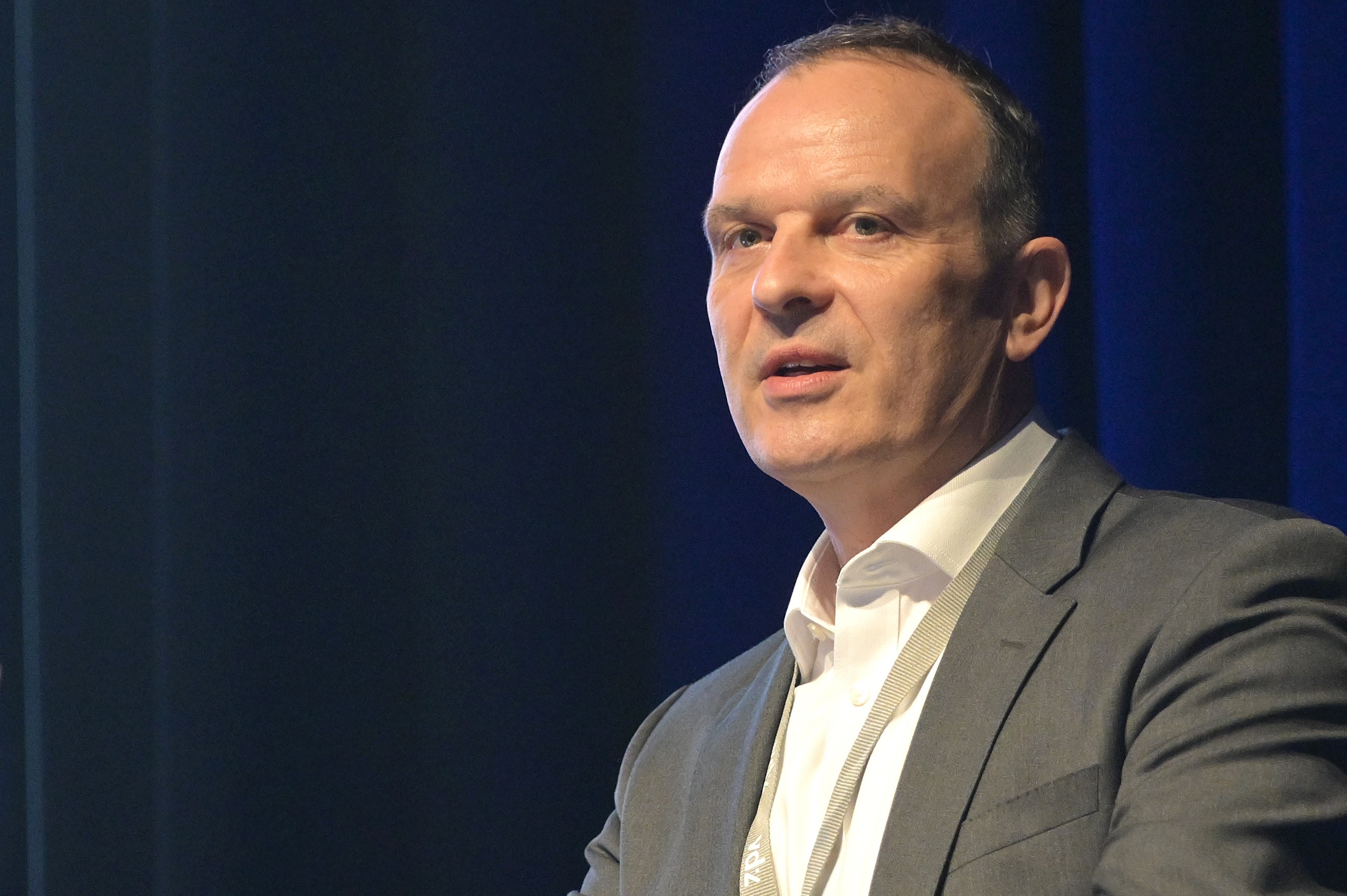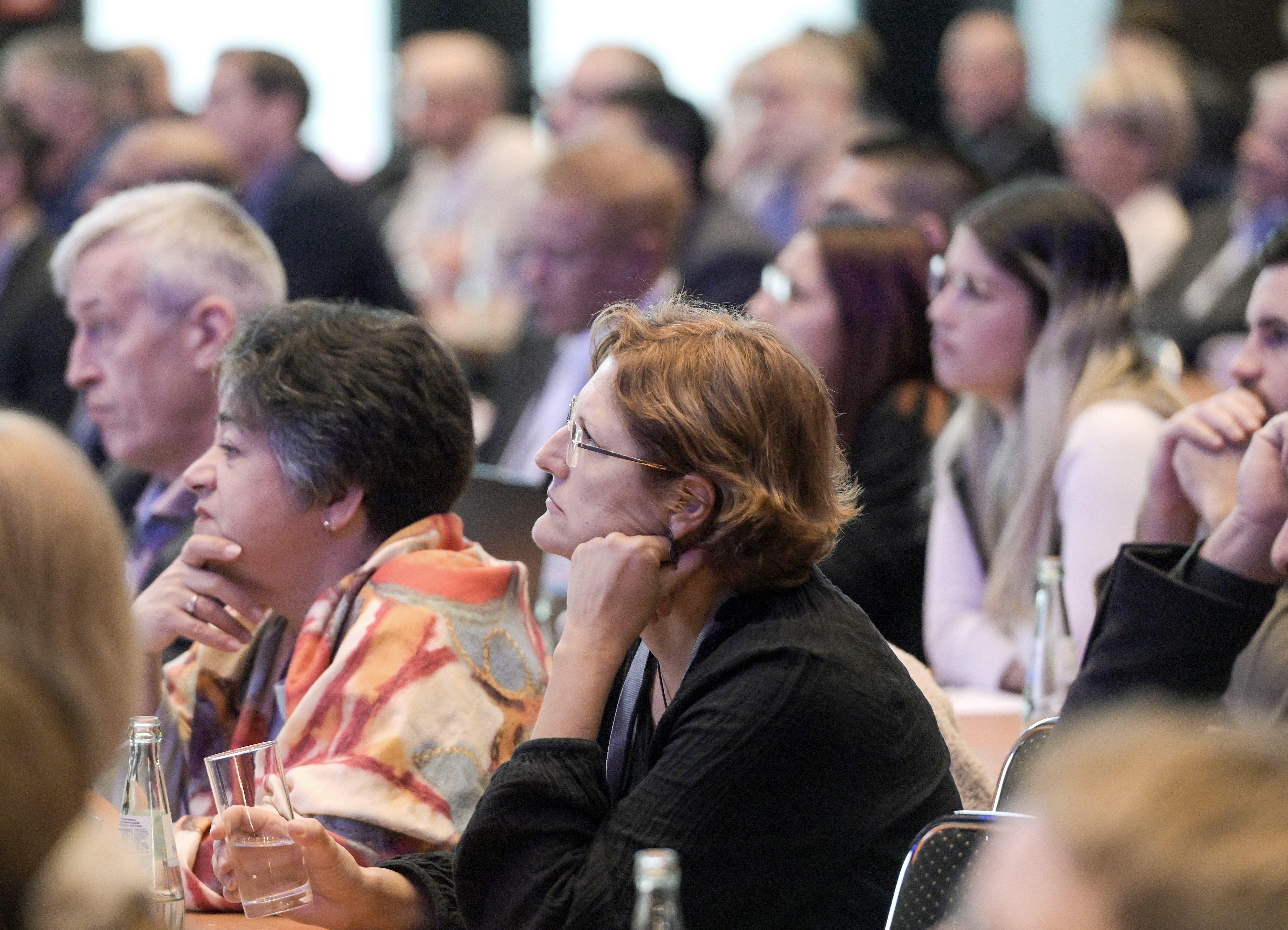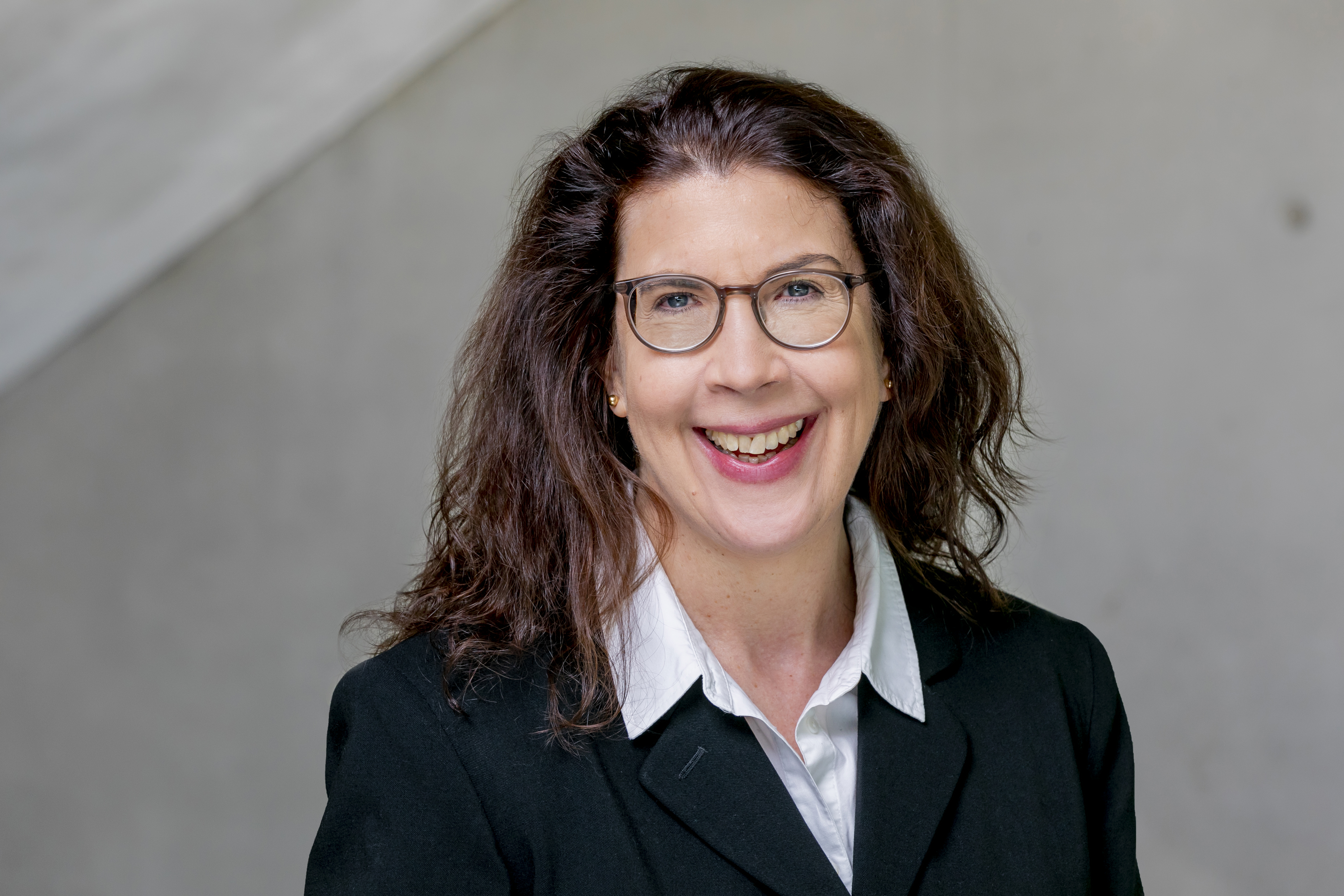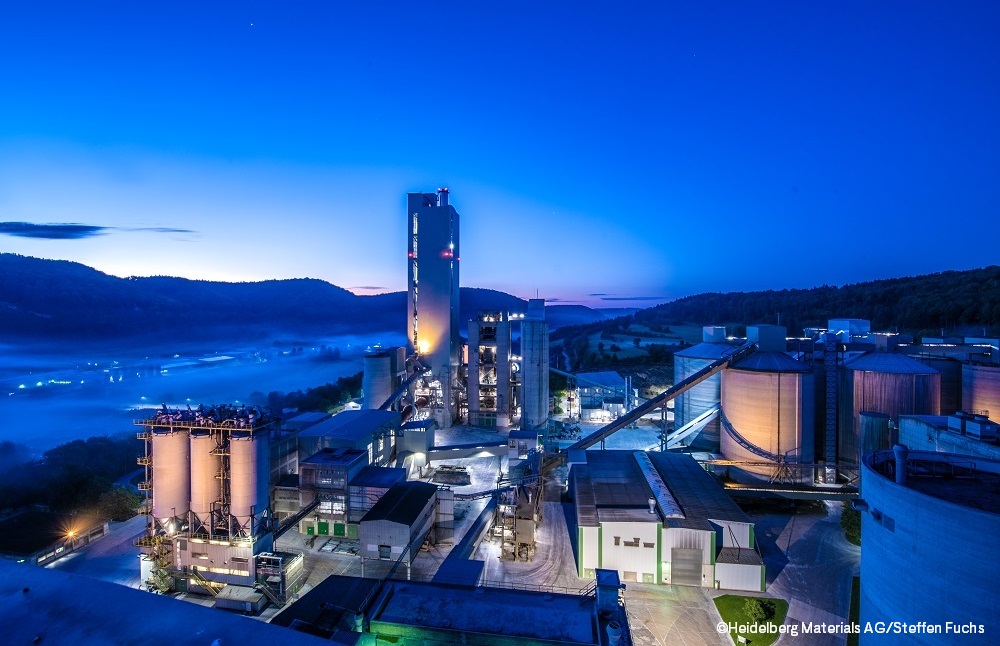
VDZ Congress 2024
The 9ᵗʰ International VDZ Congress took place in Düsseldorf on 6 – 8 November 2024. The VDZ Congress is the international scientific forum for the cement industry and its suppliers. Delegates from all over the world discuss the latest developments concerning the transformation of the industry on its way towards climate neutrality.
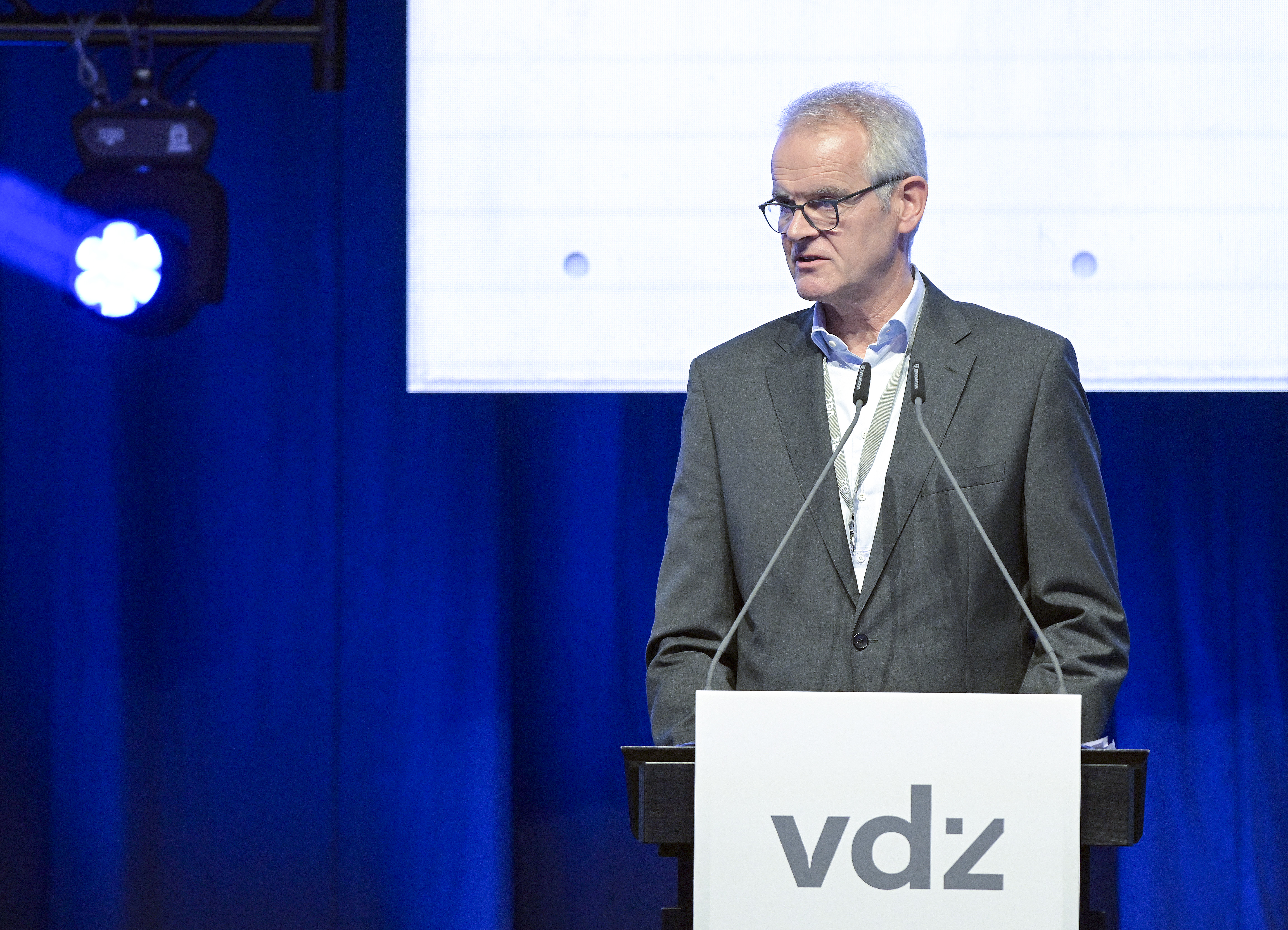
On 6 November 2024 Christian Knell, President of the German Cement Works Association (VDZ), officially opened the 9ᵗʰ International VDZ Congress with over 600 participants in Düsseldorf: ”The cement and concrete industry is probably undergoing its biggest transformation ever. Step by step, we are decarbonising our value chain”, emphasised the VDZ President. “There is no alternative, we must deliver a net-zero cement and concrete value chain and we will deliver if we get the right framework conditions and the support of governments and society”. The VDZ Congress is the international scientific forum for the cement industry and its suppliers, addressing key challenges and developments to the sector. This year's focus is on shaping the transformation together, e.g. in the fields of carbon capture (CCUS), process technology, digitalisation and binder technology.
The global construction industry is facing a significant demand for its services, even in regions such as Central Europe, where economic conditions are currently challenging. “Cement and concrete are needed, and it is up to us to decarbonise them”, said Martin Schneider, Chief Executive of VDZ. “Our sector is going to be part of a bigger solution. We will continue to contribute to global wellbeing while achieving net-zero and resource efficiency in our processes and in the value chain.”
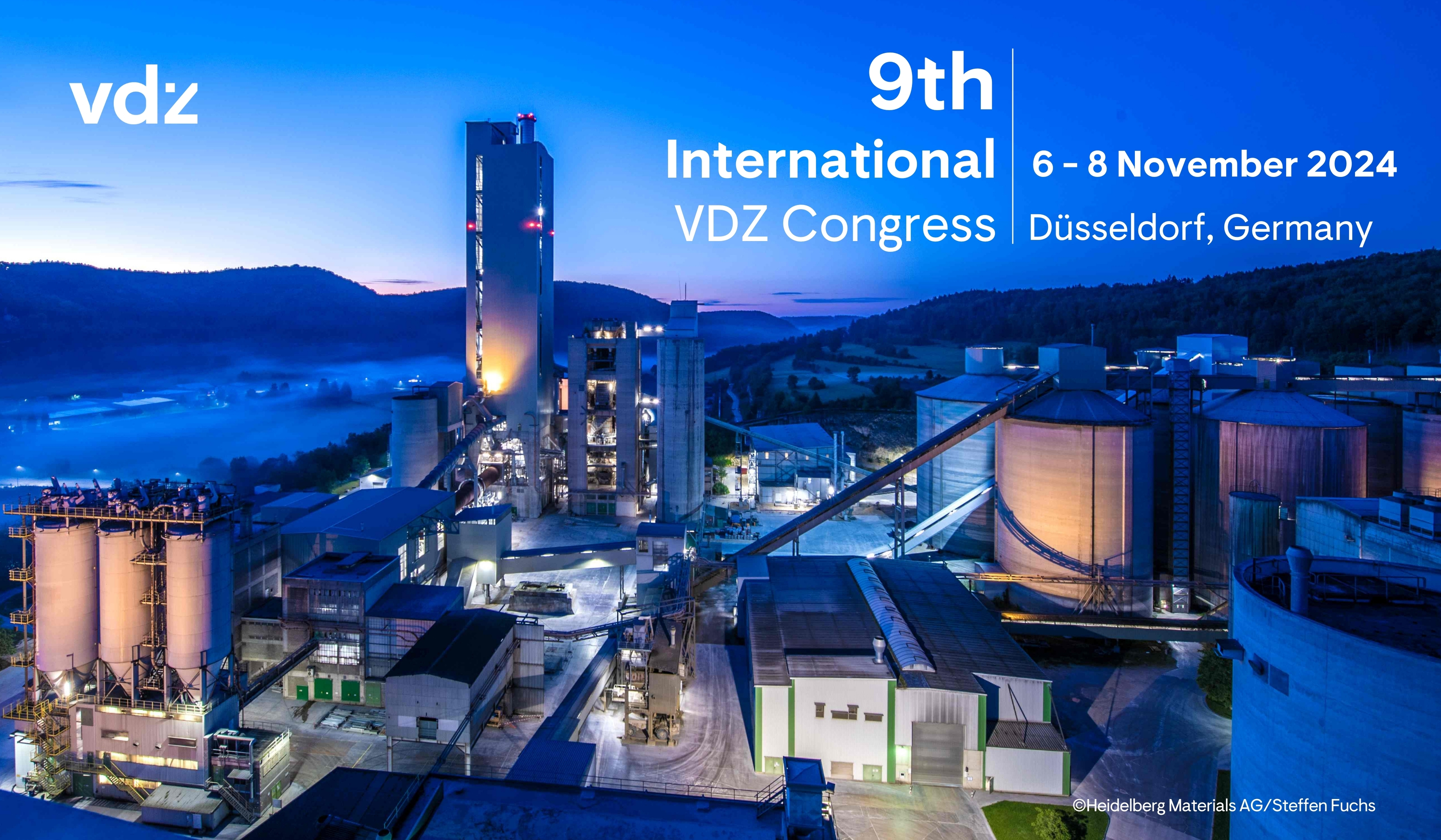
The 9ᵗʰ International VDZ Congress 2024 presented a comprehensive overview of strategies for the cement and concrete industry to gradually reduce its CO₂ emissions, energy demand, and electricity consumption while ensuring the sustainability and future-oriented development of its products. Speakers from leading international institutions, cement producers and equipment suppliers shared their knowledge on the latest developments concerning the transformation of the industry on its way towards climate neutrality. The opening day provided an overview of transformation issues along the cement and concrete value chain. These topics were further explored on the second day in the sessions “Decarbonisation through carbon capture”, “Decarbonisation through process development” and “Digitalisation to increase efficiencies”. The third day of the congress featured the sessions “Process control - emission abatement” and “Binder technology - existing and new concepts”. The VDZ Congress thus provided participants with numerous impulses for shaping the further paths of transformation.
VDZ was founded in 1877. In its capacity as a joint organisation of the German cement manufacturers, VDZ has been actively promoting environmentally compatible cement production and high-quality concrete construction for more than 140 years. As an international centre of research and expertise in the field of cement, concrete and environmental protection, VDZ has acquired a worldwide reputation and respect for its practical research work and comprehensive range of services throughout the entire value chain.
Impressions (Part 1)
Impressions (Part 2)
PROGRAMME
6 November 2024
Registration will start at 10.00h
14.00 - 17.30h
Hall Maritim
OPENING
- Welcome
Christian Knell, President of VDZ
- The decarbonisation of concrete design – what we need from the cement and concrete sector
Paul Astle, Ramboll
- The role of SCMs in tomorrow's cement and concrete
Hendrik Möller, SCHWENK
- Closing the material and CO₂ loop of concrete
Jan Skocek, Heidelberg Materials
- Grinding – state of the art and beyond
Karl-Heinz Boes, Holcim / Stefan Seemann, VDZ
- The carbon capture process chain
Kristina Fleiger, VDZ
7 November 2024
09.00 - 12.45h
Hall Maritim
MORNING PLENARY SESSION
"DECARBONISATION THROUGH CARBON CAPTURE"
- The role of CCS
Katherine Romanak, University of Texas
- Experiences from carbon capture projects at Holcim
Michael Weihrauch, Holcim
- CCUS - lessons learned at CRH
John Glynn / Pierre Bultez, CRH
- The CI4C project – the first of its kind pure oxyfuel pilot plant
Tobias Kaschke, CI4C Consortium
- IFESTOS: lessons learned so far
Faidon-Kosmas Prokopios, TITAN
- The Rohrdorfer race to net zero cement production
Christopher Ehrenberg, Rohrdorfer
12.45 - 13.45h
Lunch
13.45 - 17.00h
Hall Maritim
AFTERNOON PARALLEL SESSION
"DECARBONISATION THROUGH PROCESS DEVELOPMENT"
- Net zero decarbonisation levers: global status and outlook
Claude Loréa, GCCA
- Sinoma – its future cement plant
Sui Tongbo, Sinoma
- Meca-clay, a promising alternative technology to activate any clay as SCM
Luc Rudowski, thyssenkrupp Polysius
- Industrial experience of the Vicat Group in the production of calcined clays
François Avet, Vicat
- Clinker micronisation – CO₂ emissions reduction by enhancing the grinding process
Nestor Isaias Quintero Mora / Yuly Natalia Cajamarca, CEMEX
13.45 - 17.00h
Hall Düsseldorf
AFTERNOON PARALLEL SESSION
"DIGITALISATION TO INCREASE EFFICIENCIES"
- Digital transformation – unifying data structures in cement plants
Kevin Treiber, VDZ
- Cement plant prescriptive maintenance in 3D; transforming data into dollars in the digital era
Scott Ziegler, CemAI
- Enhancing efficiency – standardising delivery notes in the cement industry to meet evolving supply chain demands
Wolfgang Peseke, Dyckerhoff
- Improving kiln stability and fuel efficiency with artificial intelligence
Daniel Summerbell, Carbon Re / Jiri Strapina, Heidelberg Materials
19.20h
EVENING EVENT
8 November 2024
09.00 - 12.45h
Hall Maritim
MORNING PARALLEL SESSION
"PROCESS CONTROL – EMISSION ABATEMENT"
- Successful generational change at Alpacem Austria
Florian Salzer, Alpacem
- Mercury emissions – control and measurement
Robin Harrass / Ute Zunzer, VDZ
- Prospects for the electrification of the clinker manufacturing process
Albrecht Schall, VDZ
- Unicorn hunting – how to attract and keep talents for our industry
Stefan Puntke, Refratechnik
- Retrofitting of a pot calciner – impact on thermal efficiency and CO₂ emissions
Martin Oerter, Dyckerhoff
09.00 - 12.45h
Hall Düsseldorf
MORNING PARALLEL SESSION
"BINDER TECHNOLOGY – EXISTING AND NEW CONCEPTS"
- Carbon upcycling – unlocking a new generation of SCMs
Apoorv Sinha, Carbon Upcycling
- Co-reactive – turning captured CO2 into pozzolanic material
Orlando Kleineberg / Andreas Bremen / Ahmed Kalifa, Co-reactive
- Fortera - ReAct® Green Cement Ecosystem
Craig Hargis, Fortera
- Cemvision – electrified cement production
Claes Kollberg / Paul Sandberg, Cemvision
- MgO based binders as a CO₂ sink
Barbara Lothenbach, Empa
- Calcined clays of different origin – their performance as SCM in cement
Simone Schulze, VDZ
